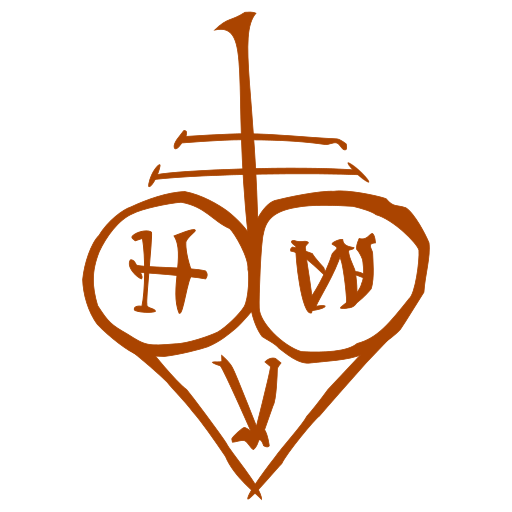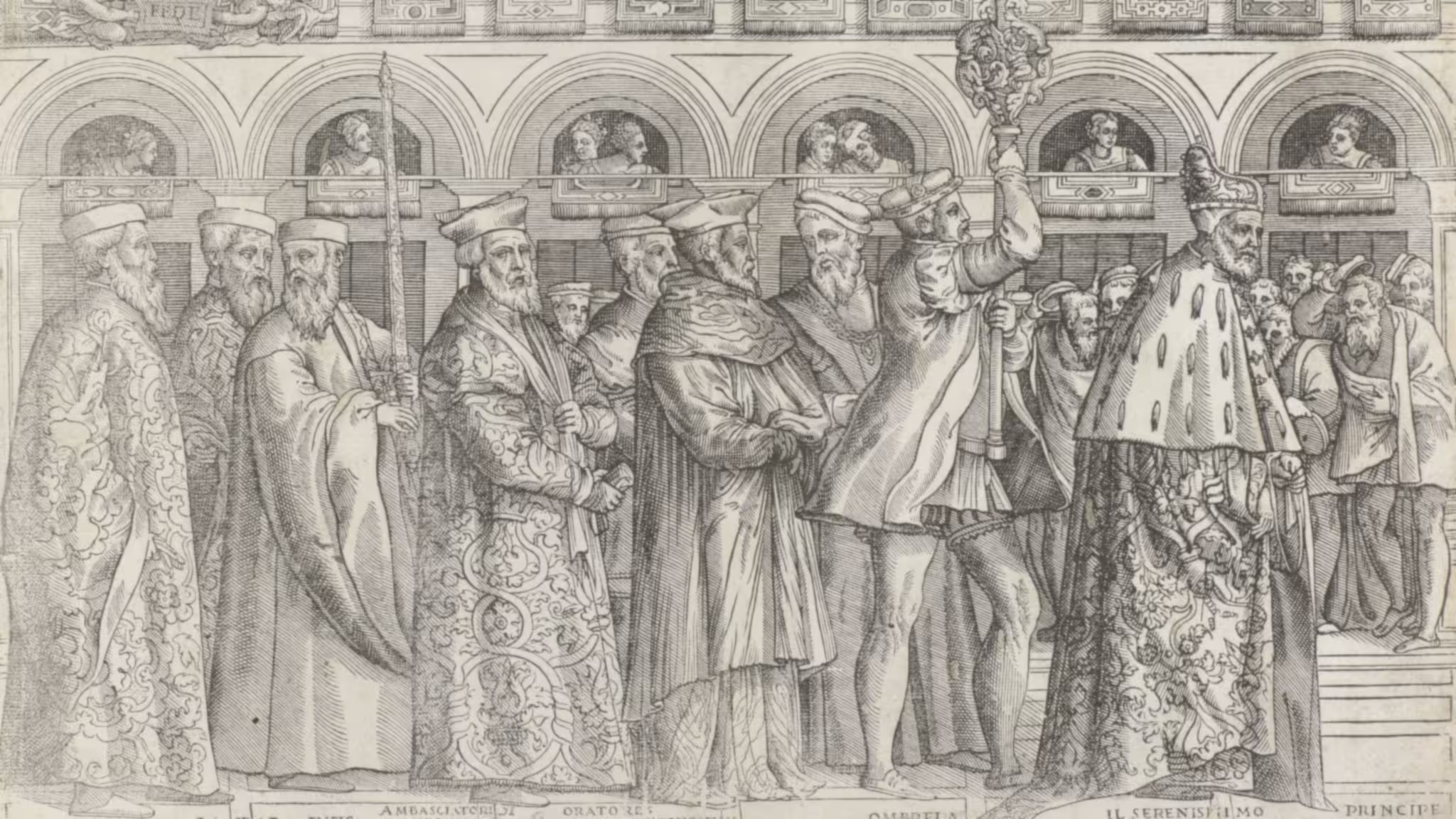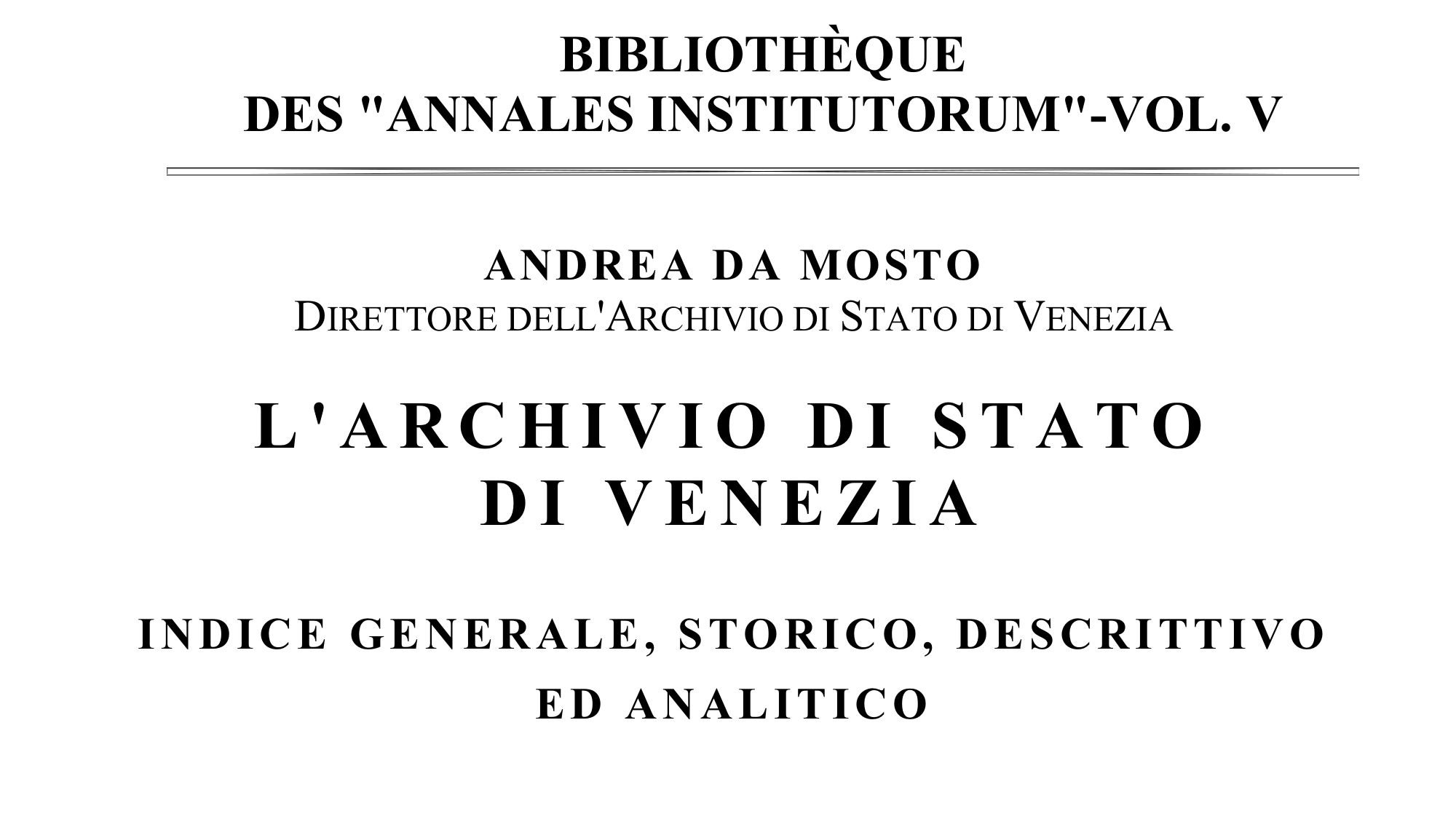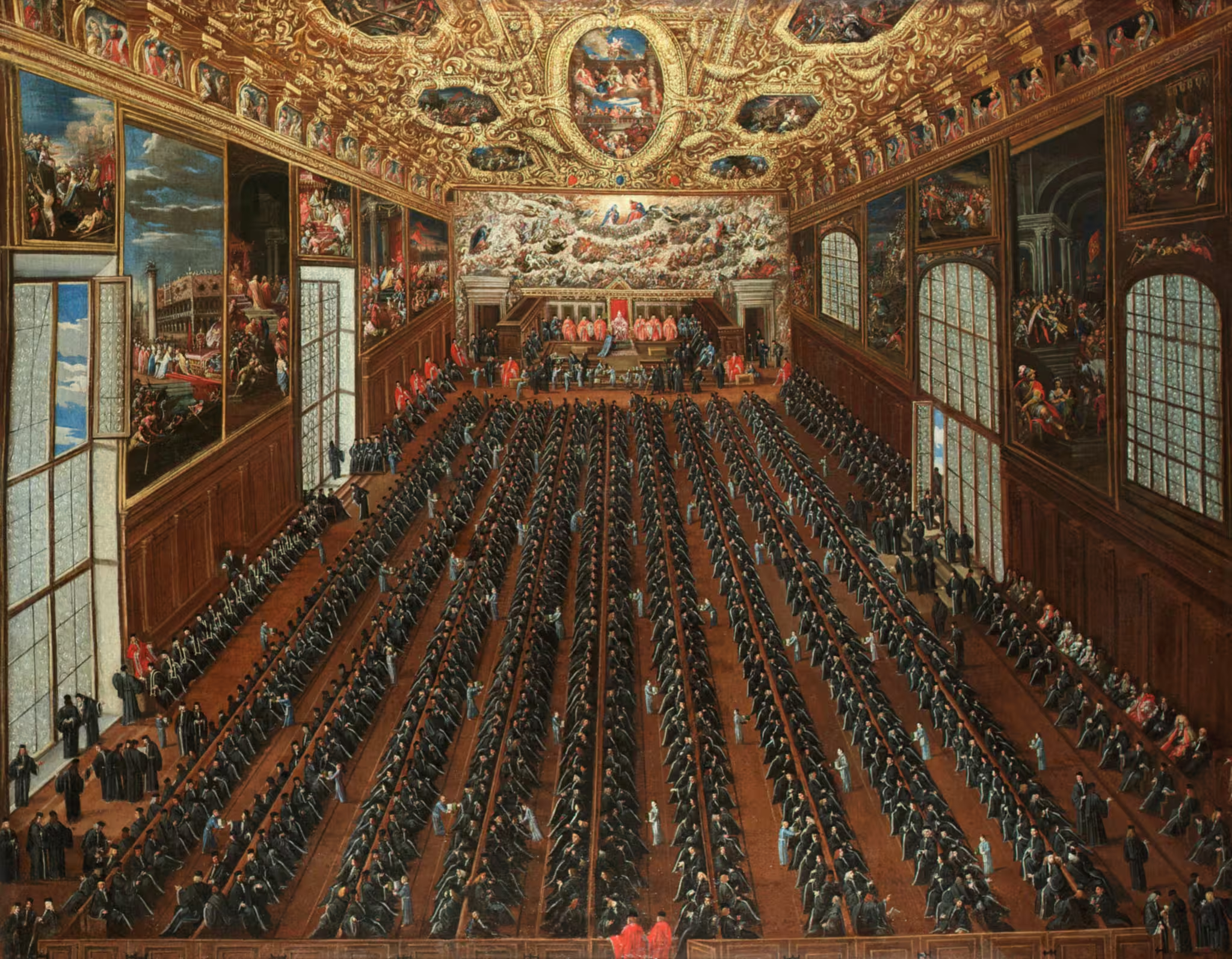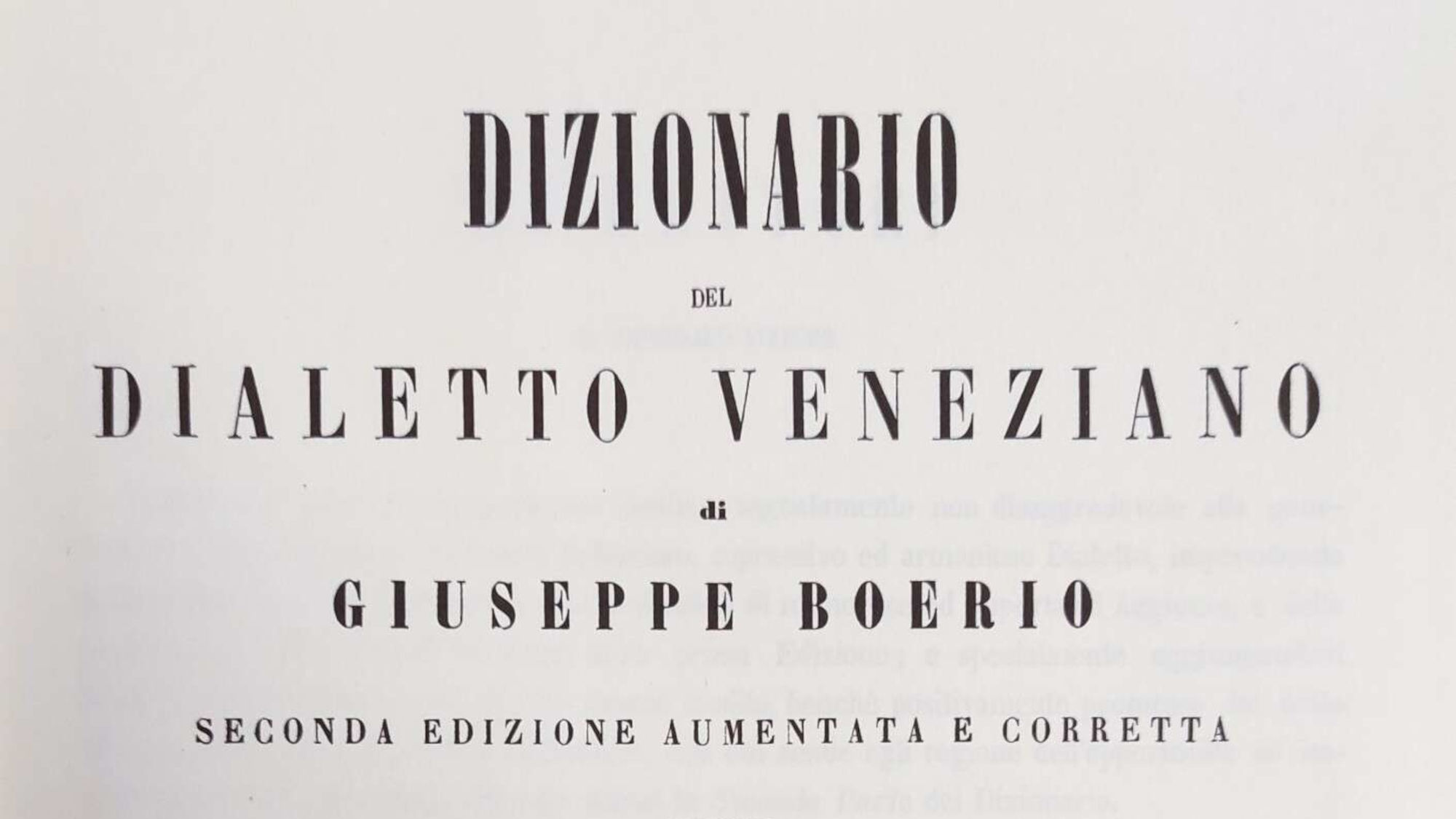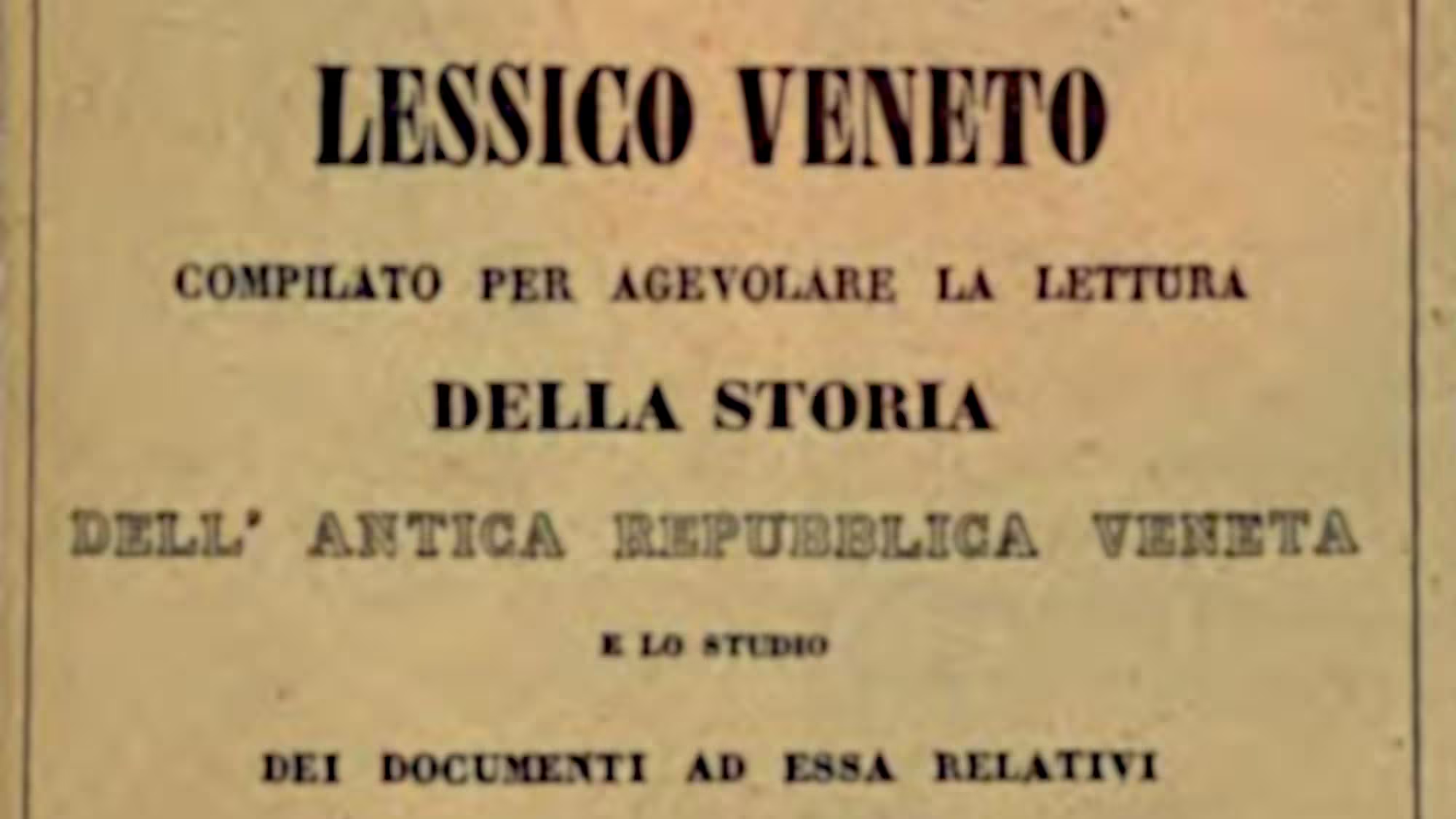Consiglio di Dieci (Council of Ten)
The Consiglio di Dieci (Council of Ten) oversaw state security and sat a court for the prosecution of crimes against the state and in cases against patricians.
-
Chronology of major Venetian state institutions
The Venetian state was always an ad hoc construct, and institutions came and went at the convenience of the ruling elite.
-
Consiglio dei Dieci — ASV Indice
“Consiglio dei Dieci” from the L’Archivio di Stato di Venezia: indice generale, storico, descrittivo ed analitico (1937) by Andrea da Mosto
-
State institutions of the Republic of Venice
The Republic of Venice changed continuously as conditions inside and outside of it changed, until it gradually found its final form in the 1300s and 1400s.
-
Consegio de Diese — Dizionario
“Consegio de Diese” from the Dizionario del Dialetto Veneziano by Giuseppe Boerio.
-
Consiglio dei Dieci — Lessico Veneto
“Consiglio dei Dieci” from the Lessico Veneto (1851) by Fabio Mutinelli, translated by René Seindal.
-
Pregài o Pregadi — Dizionario
“Pregài o Pregadi” from the Dizionario del Dialetto Veneziano by Giuseppe Boerio.
-
Monachini, Moneghini — Lessico Veneto
“Monachini, Moneghini” from the Lessico Veneto (1851) by Fabio Mutinelli, translated by René Seindal.
-
Inquisitori alle Scuole Grandi — Lessico Veneto
“Inquisitori alle Scuole Grandi” from the Lessico Veneto (1851) by Fabio Mutinelli, translated by René Seindal.
-
Esecutori contro la Bestemmia — Lessico Veneto
“Esecutori contro la Bestemmia” from the Lessico Veneto (1851) by Fabio Mutinelli, translated by René Seindal.
